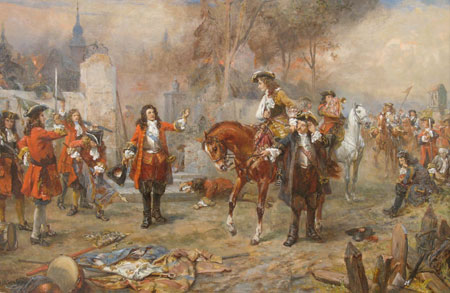Modern technology has made Earth-bound communications essentially infinite in their scope. Whereas before communication was finite, the communication abilities of the present can allow anyone to say anything, at anytime, and reach a large audience. This is a double-edged sword. While it allows ease for spreading of knowledge, it also allows for utter stupidity to be propagated without any consequence- like a rapid, incurable virus. This dynamic almost makes me wish for something like an S3 Plan from Metal Gear Solid 2 (the dialogue is chillingly accurate when you consider the amount of nonsense produced by modern media):
Consider the humorous case of Moses Garza III. I'll cut the kid some slack because he's a teenager and everyone is an idiot at that age- I was no exception, as I've highlighted before. However, I was fortunate enough to miss the second-plus wave of social media when I was that age. Back in the early-mid 2000's, we only had stuff like MySpace that wasn't overly concerned with status updates (it was still a game killer though, but that's beyond the scope of this entry).
From the late 2000's onward into the 2010's however, Facebook, Twitter, Instagram, etc. became as ingrained into our culture as walking. People constantly post updates about what they're doing or what's on their mind, no matter how inane it is. They compete with one another over who gets to take the best self-centered photos- like who has the sexiest 'baby bump.' Then they get to feel validated by the amount of likes or retweets they get by their mindless drones that can't filter out nonsense and seek approval themselves. They are slaves to this attention. We all want to feel appreciated and validated, but social media allows us to have these feelings for the wrong reasons. Whereas in the past we might have earned praise for a wise quip or a grand accomplishment, social media allows us to earn empty praise simply because we took silly photos or gave a silly status update.
Social media, aided by its primary missionary, the smartphone, allows people to attention whore at any place, any time, and for whatever reason. It is like a drug that we can get hooked on with zero risk and maximum convenience. It allows for actual human contact to be kept at a minimum, and permits us to put on a veneer rather than show our true selves, making communication significantly more shallow. Worse, there is quite a bit of evidence that social media and smartphones make you less intelligent.
By reading this one might think that I'm anti-social media. I'm not. There is a right way and a wrong way to use it. The right way is to use it for promotions and advertising, to keep in touch with old friends, and getting important information out there for the maximum amount of people to see. The wrong way to use it is for posting mindless status updates and seeking shallow ego-gratification. Unfortunately, most people use it the wrong way and worse, they are celebrated in the media for it.
Twitter I think is a bit less poisonous than Facebook. Its structure is more conducive toward using it the right way rather than the wrong way. Still, Twitter meltdowns of epic proportions have become infamous in the media, and it is arguably even more conducive to the most extreme self-destructive, thoughtless attention whoring than Facebook is.
I use my Facebook the right way, but I honestly wish I could get rid of it. There is considerable evidence that it kills your game (especially if you're not in the best of places), and I always avoid anything having to do with Facebook when interacting with women. I will never give it out, at least not at first. Ultimately I agree with ROK's Tuthmosis that it is a cop-out, a path of least resistance that allows us not to take any risk and become better people (unfortunately I've been caught in this behavior myself more than once). It is an abstraction of real social interaction, and spending too much time on it disincentivizes actual and meaningful improvement in our lives.
Stop being a slave to social media. Put your smartphone down (click the link, I used to do this A LOT and very recently, but have since made a conscious effort to stop), interact with real people, and accomplish actual objectives. Use social media to promote yourself and your undertakings- your shows, your businesses, etc. Do not use it to build a wall around your life. Stop the attention whoring and find a more productive hobby. You'll be happier and society will be better off. Social media twitter facebook smartphones



.jpg)


.jpg)
